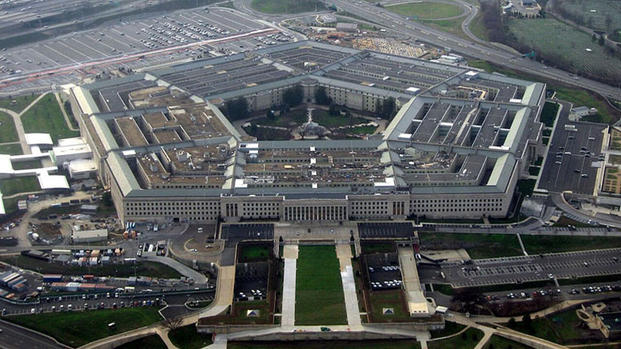The Trump administration is expected to leave in place the newly created Defense Innovation Board of high-powered tech industry executives and strategic thinkers, board chairman Eric Schmidt said Monday.
"I believe it will. We have every reason to believe it will continue," said Schmidt, a software engineer who is the executive chairman of Alphabet Inc., the parent company of Google.
Schmidt expressed confidence that the unsalaried work of the board would continue while acknowledging that he has received no assurances as yet from the Trump transition team or from retired Marine Gen. James Mattis, Trump's choice for defense secretary.
The forecast for the continuation of the Defense Innovation Unit Experimental, or DIUx, another creation of outgoing Defense Secretary Ashton Carter, is less certain. DIUx was set up last year with the goal of speeding the process of getting new technology from "non-traditional sources" into the hands of warfighters
The National Defense Authorization Act passed by Congress and signed by President Barack Obama limited funding for DIUx, and Pentagon officials said its future would be in question in the new administration.
However, DIUx has a defender in retired Adm. William McRaven, the former head of U.S Special Operations Command and a member of the Defense Innovation Board. At the board's meeting Monday, McRaven, who organized the raid that killed Osama Bin Laden, said that keeping DIUx "seems like a no-brainer." He called the creation of DIUx "one of the great decisions of Secretary Carter."
While stating that the Defense Innovation Board would likely continue into the next administration, Schmidt was less sure that all of the current board members would agree to stay.
"I have indicated I would be very happy to serve under [the Trump administration], and I believe all, or everyone but maybe one, will continue" on the board, said Schmidt, who was a major contributor to Obama's election campaigns.
"I'm just assuming one or two might choose [to leave], but I don't know. My current expectation is everyone would stay on. No one has told me they are leaving, but it's also the case no one has been asked by the new administration to stay because the new administration doesn't exist yet," Schmidt said.
Board members Neil deGrasse Tyson, an astrophysicist and director of New York City's Hayden Planetarium, and LinkedIn co-founder Reid Hoffman have been critical of Trump.
Both Hoffman and Jeff Bezos, the Amazon founder who was criticized by Trump during the campaign, were not at the board meeting Monday. Tyson was present and indicated that he would stay.
"All the carefully selected quotes that you find in these halls [of the Pentagon], they pledge allegiance to the Constitution," Tyson said. "And I have yet to see a quote that talks about the president. So I think there is a higher mission statement that we all live by here."
Carter set up the Defense Innovation Board last April, and the board met for the first time to consider recommendations in October. Carter then approved three recommendations to create the post of chief innovation officer at DoD, boost the number of "cyber recruits" in the military and set up a DoD center on artificial intelligence and machine learning.
At the meeting Monday, the board considered and approved several other recommendations. Among them were:
- Create a career track for computer scientists in the military.
- Direct U.S. Cyber Command to work with the National Security Agency in identifying software vulnerabilities in nuclear weapons systems and other advanced weapons.
- Speed the process to grant waivers to the current cumbersome acquisition process for new weapons and systems.
- Create a new data system to serve as the principal storage platform for most DoD data.
- Embed software development teams with individual commanders periodically to serve as a "human cloud" for solving problems on site.








